I have a child with spina bifida and I admit I’m one of the many parents who has mixed feelings about the folic acid prevention topics – surprisingly this is the first time I’m writing about the topic on my blog. I recently read an article written by Dr. Lance Chilton titled “Folate before and during pregnancy can prevent a lifetime of disability” and feel compelled to share my thoughts on folic acid.
My son Chance was born a little over four years ago with spina bifida, so forgive me if I’m passionate about advocating for those who are affected by this birth defect – but this little guy has changed our lives. I took folic acid for years before he was born – but he was still born with the birth defect.
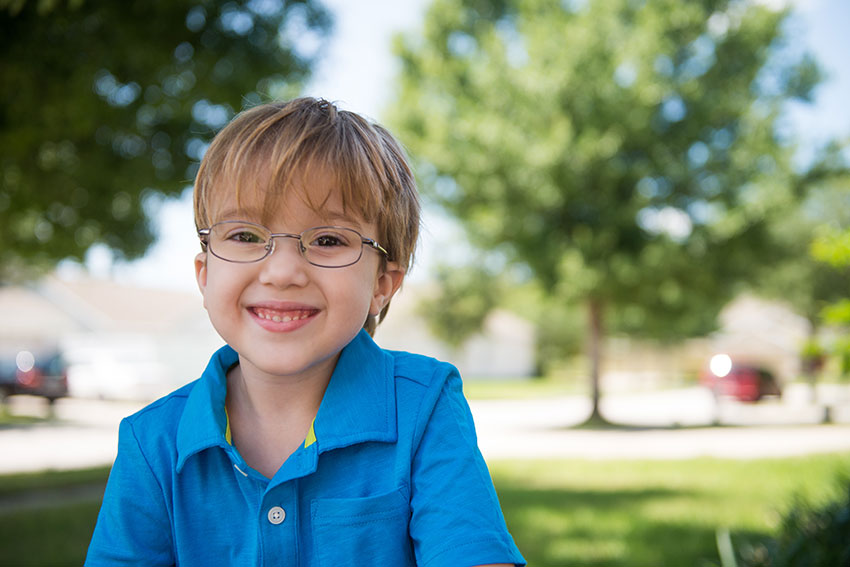
For those who aren’t aware of what spina bifida is – it is a birth defect that a person is born with. During the first month of pregnancy Chance’s spine never fully formed. He was born with an opening in his back that was about the size of a silver dollar. This “defect” required surgery when he was just a few hours old. Spina bifida has no cure and often requires complex care in various areas.
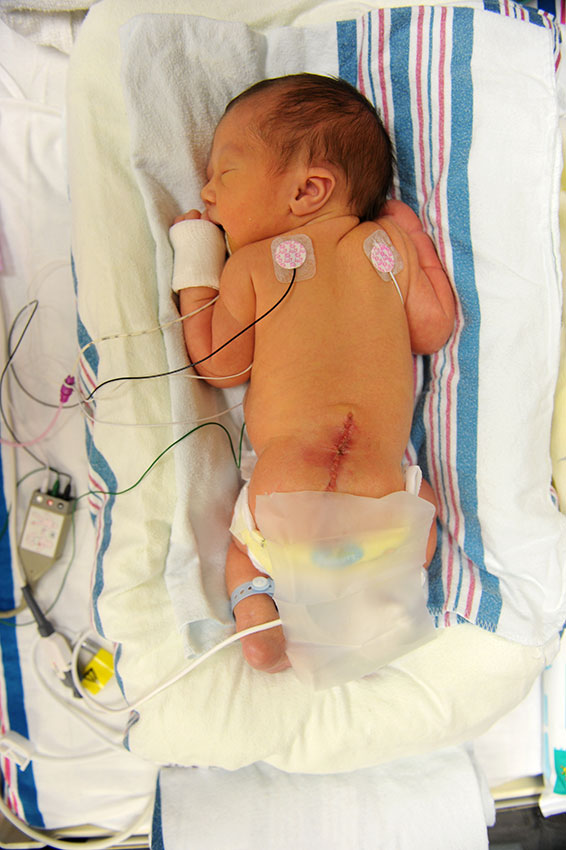
I value the role of “prevention” and think it’s so important. Surely you know about folic acid – its the supplement we pray will prevent birth defects like spina bifida. It’s perceived to be the miracle worker in healthy foods and vitamin supplements – and if taken research has proven it CAN reduce the chances of having a child with a birth defect like spina bifida. Eat your foods rich in folate and take your vitamin with 400mg of folic acid – that’s what women should do before and during pregnancy. I did take folic acid and I have a child with spina bifida.
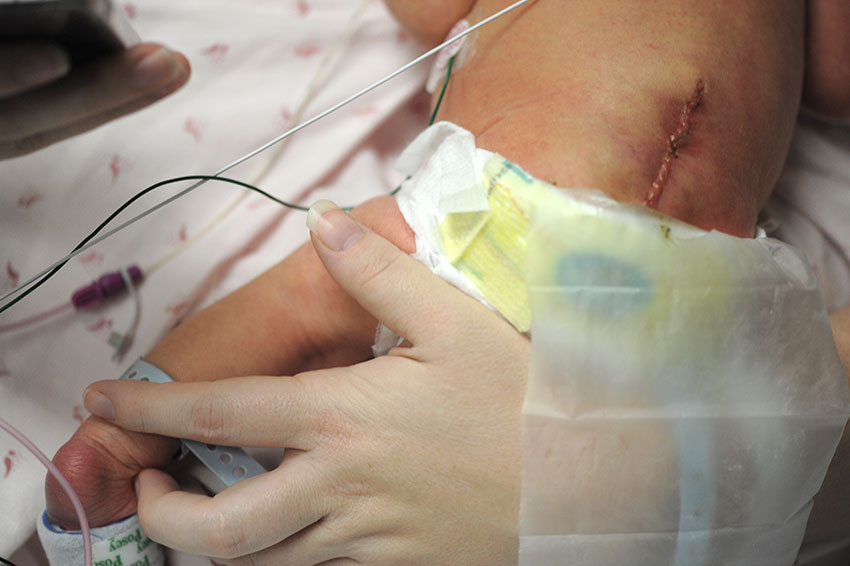
I did everything the doctors said to do – and still have a child with spina bifida – something we tried so hard to prevent. It’s proof that folic acid isn’t the sole way to prevent a child from having spina bifida. But surely every time the topic of spina bifida comes up – many of us parents are questioned and asked why we didn’t take our folic acid. In fact, during my pregnancy one of my own colleagues who is well educated in nutrition asked this very question, “Don’t you know folic acid can prevent spina bifida?” It goes to show that most of society is lead to believe that not taking folic acid is the cause of spina bifida. Well, I have some news for you all…thousands of mothers took their folic acid just like they were told to do and they have children with spina bifida.
More folic acid definitely couldn’t have made my child a more adorable child…aren’t kids with spina bifida some of the cutest on the planet? Our son shared his sweet personality at a very early age.
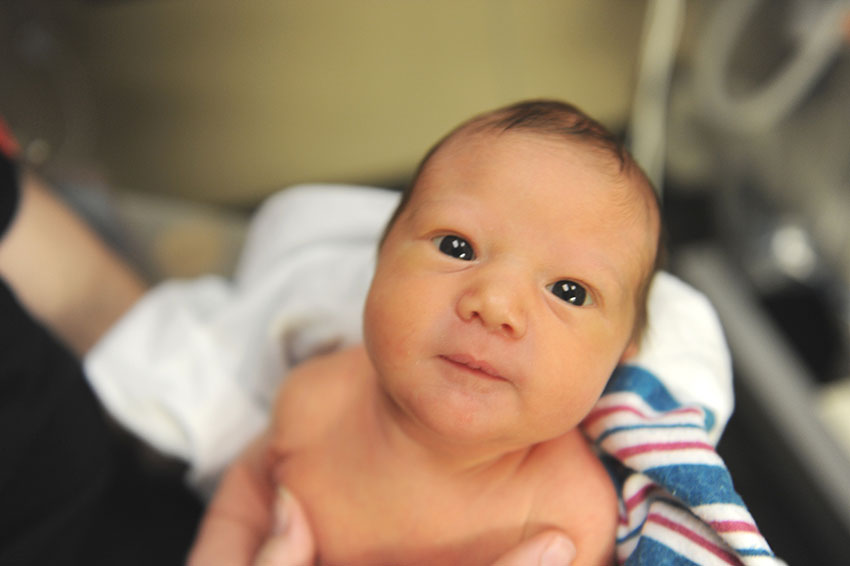
In Dr. Chilton’s article he notes that another doctor, Scott Obenshain, has shared that fortifying foods with folic acid has decreased the occurrence of neural tube defects like spina bifida – which is very true. He mentions over 5 million children have been born with spina bifida. Currently there are approximately 166,000 individuals in the U.S. living with spina bifida and about 500,000 living with the birth defect worldwide. The article misleads readers to believe that spina bifida is 100% preventable. Although Dr. Chilton does reference that folic acid can help reduce the occurrence of spina bifida by 70% it is disappointing to hear a medical professional refer to spina bifida and disability saying “How much better, though, to not have to head off to college in a wheelchair, to be one of the 22,000 children saved by folate every year around the world from a life hampered by disability!” Folic acid surely can reduce the occurrence of spina bifida by approximately 70%, but it is not a 100% method of prevention of the birth defect. So many causes of spina bifida are still not known and for most women like me. We will never know “why” our child was born with spina bifida. I’ve come to trust that I could not have done more to prevent our son’s birth defect. In fact, raising a child with spina bifida has taught me that some things in life, regardless of how challenging they may be, cannot always be prevented – and what initially is perceived to be a huge burden often proves to be a life changing blessing.
The image below is of our son Chance when he was just one week old after he went through his 3rd surgery to have his 1st shunt placed. Now before you “awe poor baby” our boy – lets appreciate the strength of these kids born with spina bifida. They are resilient and bounce back from some of the toughest challenges in life. When most other people would want to give up – they have learned to thrive amidst the most challenging of circumstances.
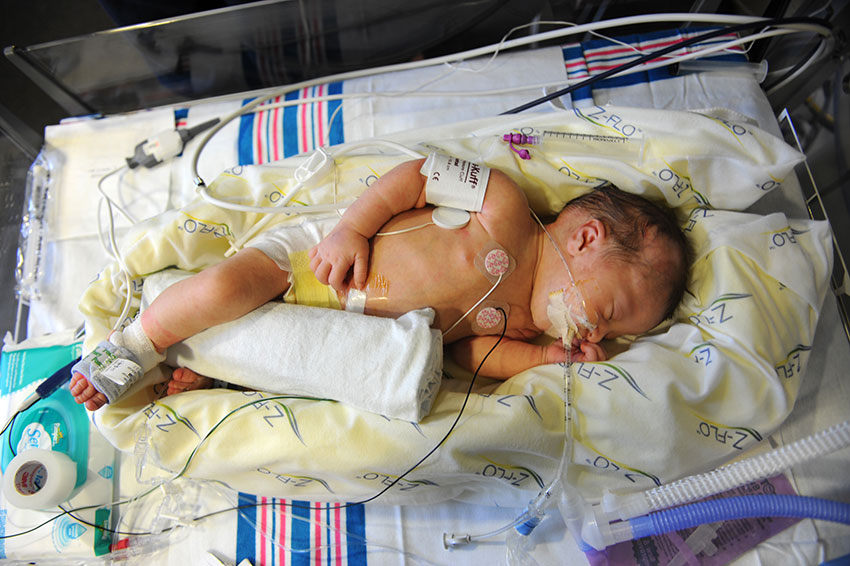
Yes, Dr. Chilton, as you say it’s amazing what the “tiniest dab of an important substance can do!” I’m so thankful folic acid has been able to reduce the occurrence of spina bifida by 70% but have you ever given any thought to the 30%? You know the 30% of us who DID take folic acid daily for months or years prior to conceiving. My diet was filled with foods containing folate yet I still had a child with spina bifida. I appreciate you helping educate your community on the value of folic acid supplements, however, for thousands of families folic acid supplements were NOT enough to prevent spina bifida. By no means do I discourage the use of folic acid – but perhaps medical researchers have a lot more work to do to better understand the causes of spina bifida because folic acid supplements alone are not the only solution to reducing the occurrence of spina bifida. So many families affected by spina bifida have spent time wondering “why” and “if” they could have done more to prevent their child’s birth defect. How about doctors do more research into if women conceiving are able to process common folic acid foods and supplements properly? Or perhaps we also place focus on a man’s nutrition and folic acid intake – because surely they have just as much of a role in the creation of their child. Or perhaps there needs to be more research into environmental conditions – there are areas in the United States alone that have a higher occurrence of spina bifida which is evidence that much more than folic acid is to blame for children being born with spina bifida. Folate may help some, but I pray the medical community and those trying to prevent spina bifida stop trying to lead the world to believe that folic acid is the sole way to prevent spina bifida. This article misleads readers to believe folic acid is the magic solution to preventing spina bifida.
My bigger concern is not Dr. Chilton’s mention of the value of folate in a women’s nutrition before and during pregnancy but the references to spina bifida and disability are so disheartening to read. This recent article written by him is anything but heartwarming for a family affected by a disability to read. Yes, I admit – if I had the choice – my son would not have been born with spina bifida. In his four years of life he’s been through so much – 13 surgeries, 6+ weeks hospitalized, and countless medical tests, appointments, and therapies. In fact, his cost of care in four years has far exceeded the estimated lifetime cost to raise a child with spina bifida. The CDC notes that the estimated lifetime cost to care for a child with spina bifida is $706,000 – the birth defect can certainly be costly. I do believe families should do as much as possible to prevent spina bifida because the birth defect typically does lead to a lifetime of medical needs, but please don’t consider individuals born with spina bifida to be confined by their disability or that they will feel “hampered” by their disability. In fact, many born with spina bifida will tell you that the life they lead filled with medical challenges are all they have known and most do not want you feeling sorry for them. Besides, whether or not an individual attends college in a wheelchair – they can still lead an amazing life and I suspect most aren’t sitting there wondering “did my mom take folic acid?” I’ve learned of many people living with this birth defect are leading full lives – attending college and performing jobs such as educators, writers and doctors – certainly proof that their lives are not “hampered” by spina bifida.
Chance may have experienced a significant amount of medical challenges in his lifetime but I can sense these challenges are strengthening him.
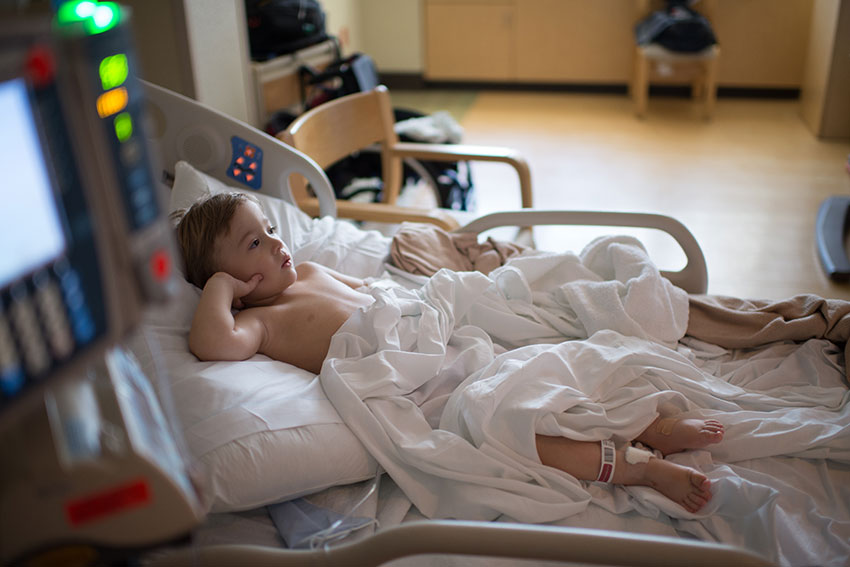
Our son Chance has proved he’s capable of amazing things. If you sit and feel sorry for the medical moments he’s faced you’ll miss out on seeing the great things he has already achieved. I’m pretty sure he can out swim most kids his age!

And rather than fearing if a child may be “hampered” by a life in a wheelchair – I pray doctors sharing information on spina bifida don’t lead the world to believe that all individuals living with this birth defect will be confined to a wheelchair. In fact, many do walk – they may need the support of braces and assistive devices but nearly 70% of individuals with spina bifida do walk with or without support! Even if they require a wheelchair for mobility – I promise it’s not the end of the world. Our son also uses a wheelchair for longer distances and if he ends up going to college using his chair – I surely won’t make him feel like he’s living a worse life because of it.
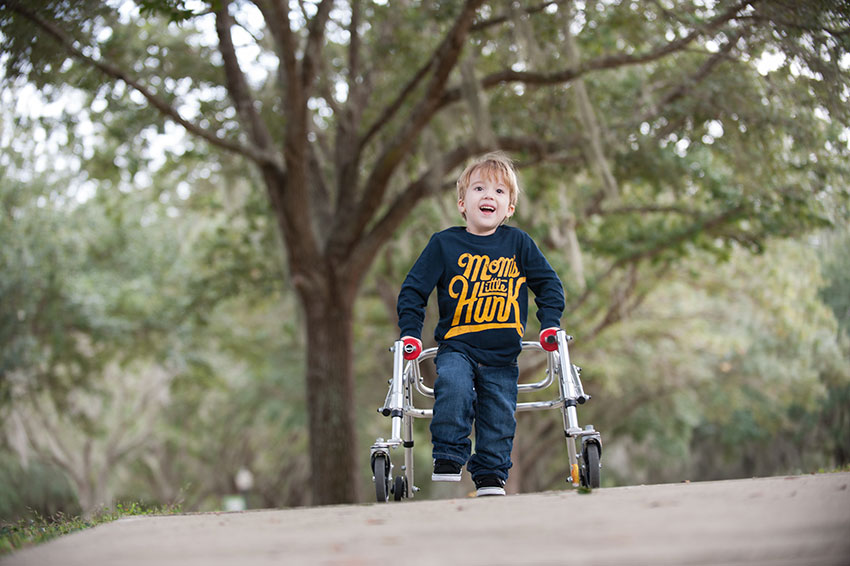
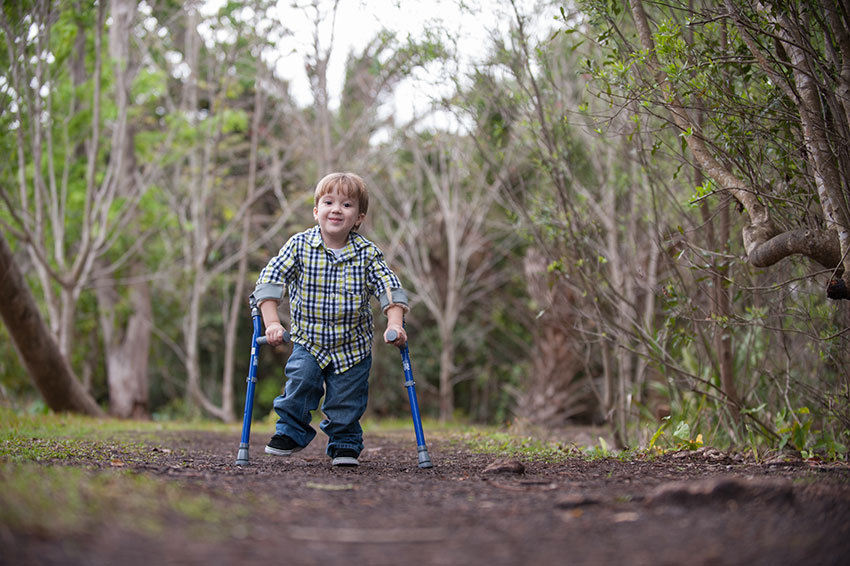
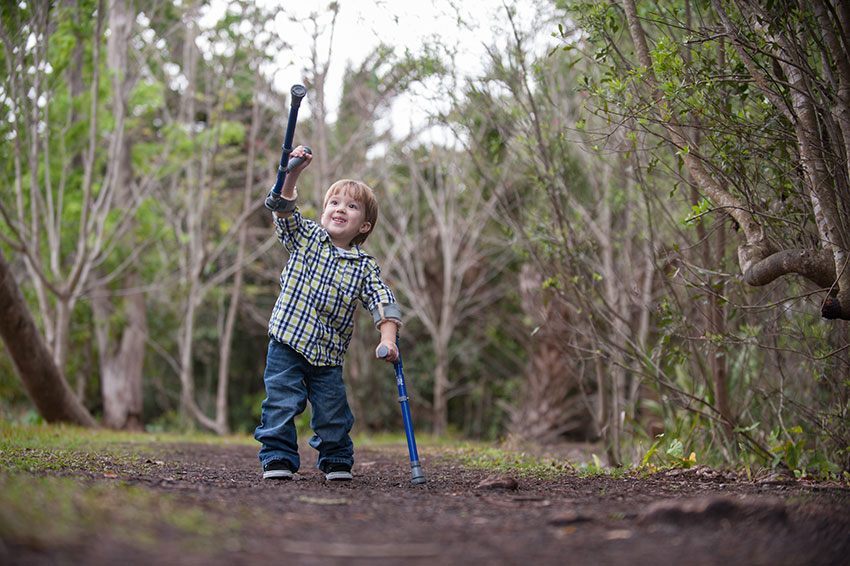
In so many ways Chance is just like any other kid his age – he loves to color with his brother!

Just like every other kid he has a blast playing at the park.
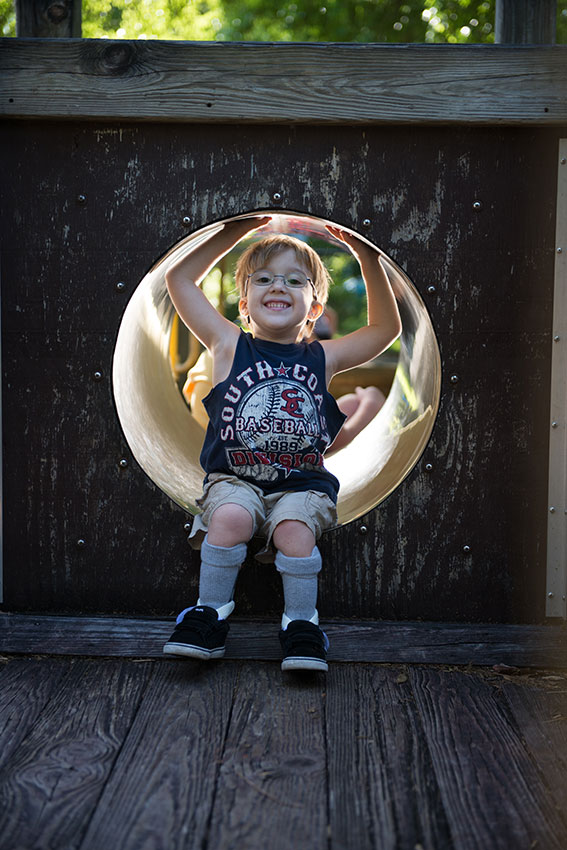
And he’s an active little guy always on he move – having fun through it all.
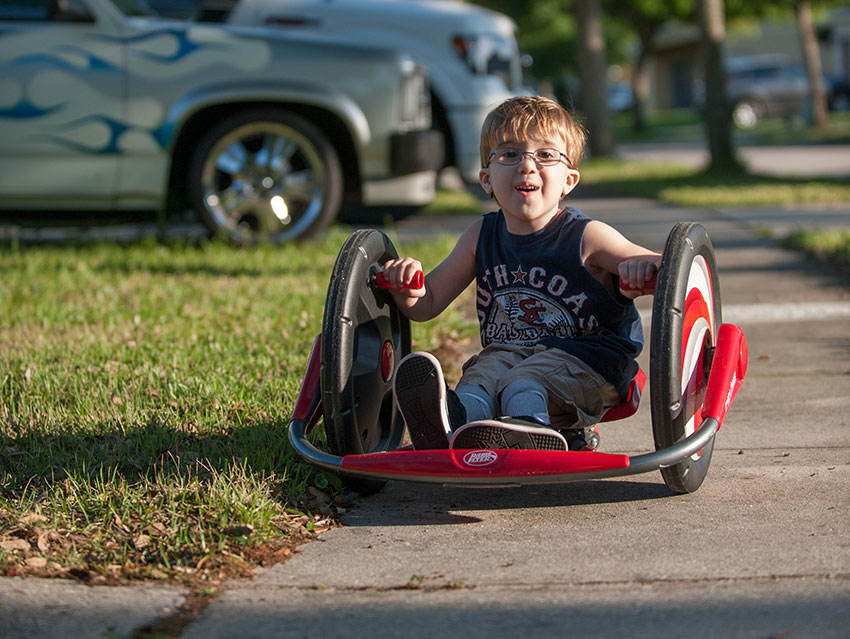
He may require a little help at times but overall he’s so much like any other child his age.
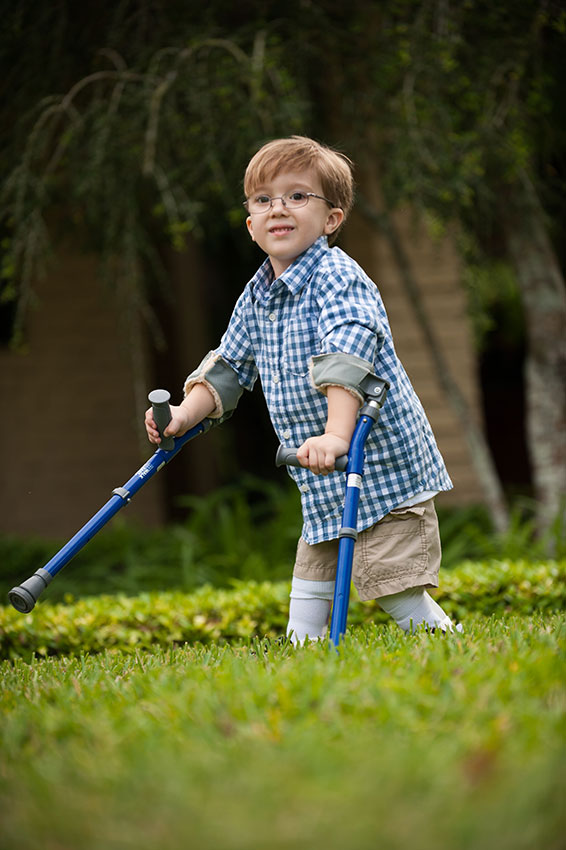
In fact, put him out in public and we’re fairly certain he’ll find his way around on his own. In fact he prefers to move around independently. There’s no reason to feel sorry for him because he was born with a birth defect. We tried our best to prevent it – but we’ve realized he was meant to be in our lives living his life with this birth defect and now we will do all we can do support his needs.
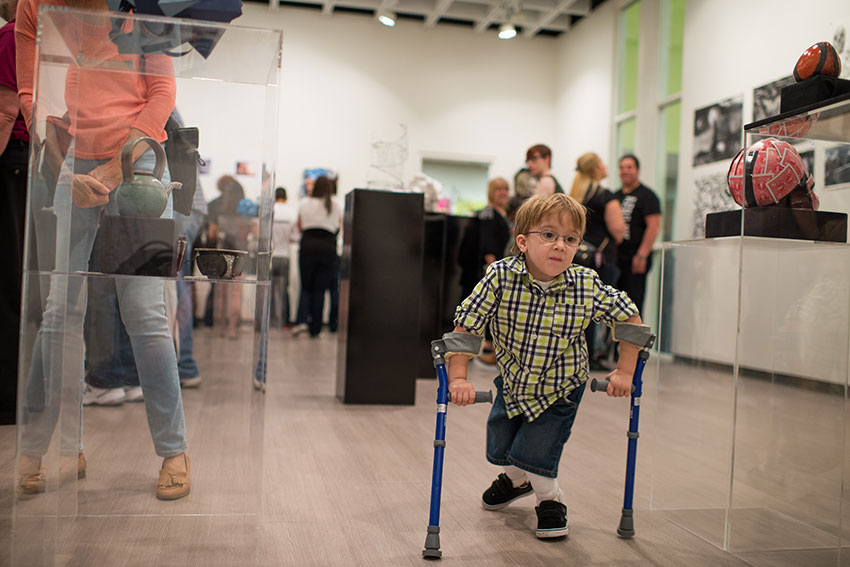
There’s one thing missing from Dr. Chilton’s article – and that’s the ounce of hope needed by families affected by spina bifida – for those families who did take folic acid who have or will have a child with spina bifida. Dr. Chilton you are correct, spina bifida is the most common permanently disabling birth defect with complex challenges that often leads to a lifetime of care and expenses are often 13 times greater than an average child’s medical care. We were reminded of that this past month as our little guy underwent his 13th surgery for a shunt revision.

Dr. Chilton you forgot to mention that individuals born with spina bifida are among the bravest, strongest, and most kind hearted individuals.
They are resilient and no matter how many medical complications they may endure in their life…they are loved.
This birth defect our son was born with – it doesn’t prevent us from loving him. On the contrary spina bifida has taught us just how powerful our love for him is. It’s also taught us that what we once perceived as an “imperfection” has since helped us see that Chance is perfectly made.
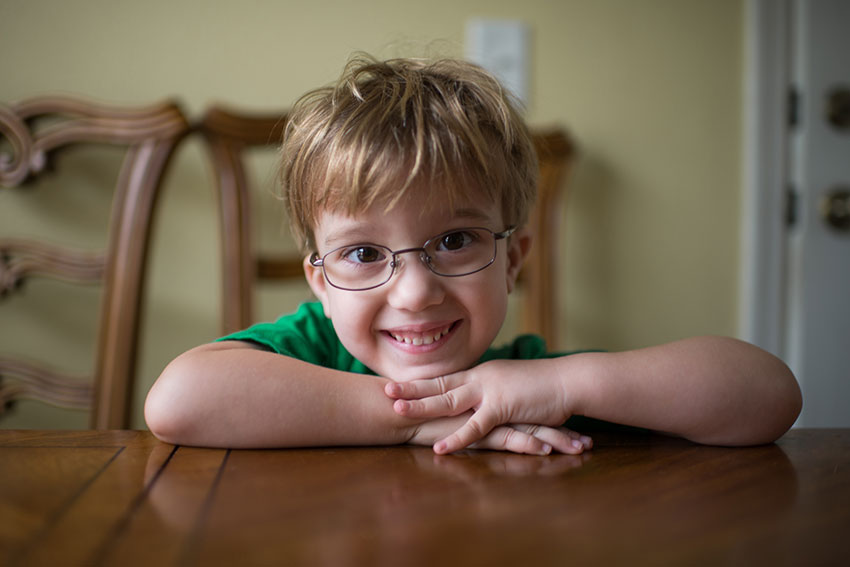
I pray the next time a doctor has an opportunity to educate a community or their patients on spina bifida that they find a way to bring more hope to those who may someday be affected by this birth defect. Prevention is important – but lets pause to think about how these families affected by spina bifida may be feeling. So many of us did all we could to prevent the birth defect and have a child with spina bifida. Our world has created enough stigma against spina bifida and disability. We need more doctors who care to also bring hope and optimism to those who may be affected by spina bifida. Rather than trying to eradicate spina bifida from the planet I wished the world would spend more time finding ways to support those families whose lives are forever changed by spina bifida.
Now take a look at the photos below – they are just a fraction of the individuals born with spina bifida that I’ve photographed in the past four years. We can sit here and discuss prevention and folic acid – but the reality is that 30% of the population has taken folic acid and they still have children with spina bifida. And guess what? To our community of families affected by spina bifida a more important thing to worry about than folic acid is promoting a community that will support the families affected by this birth defect.
 If you’d like to see more hopeful images and reflections of spina bifida visit the Redefining Spina Bifida facebook page.
If you’d like to see more hopeful images and reflections of spina bifida visit the Redefining Spina Bifida facebook page.








by Amanda Kern
9702 comments